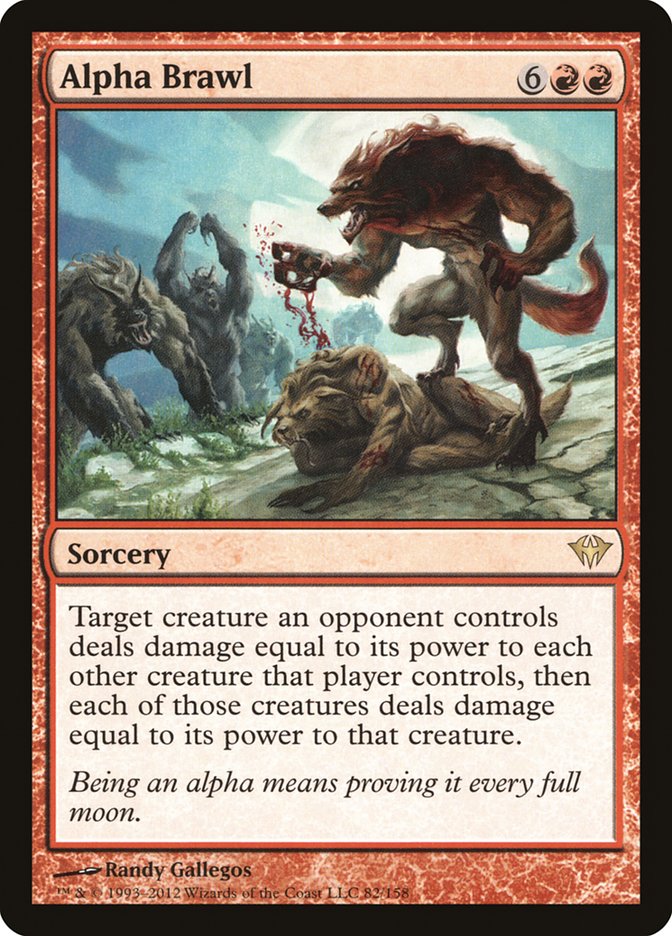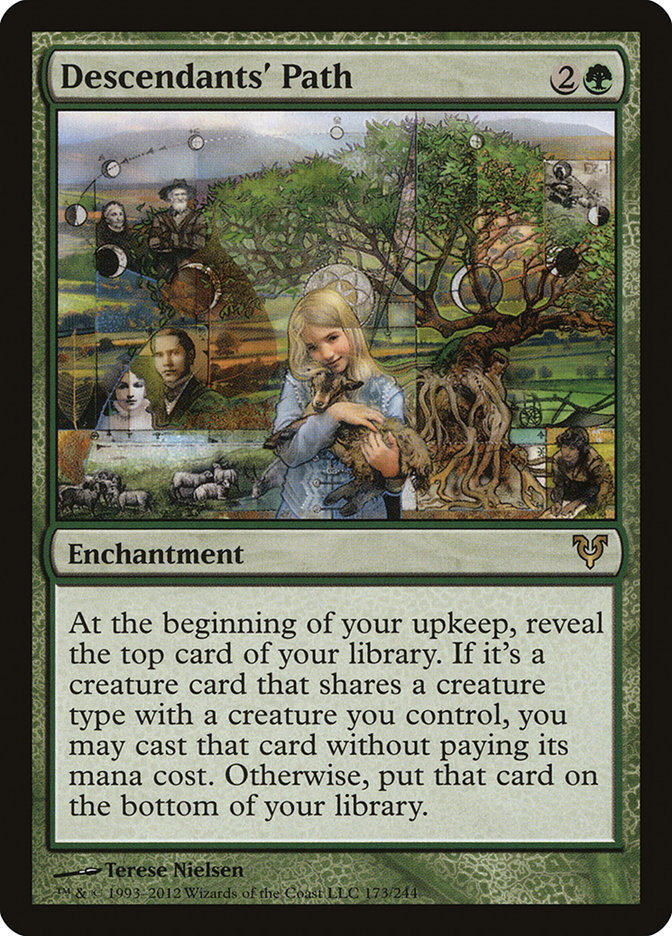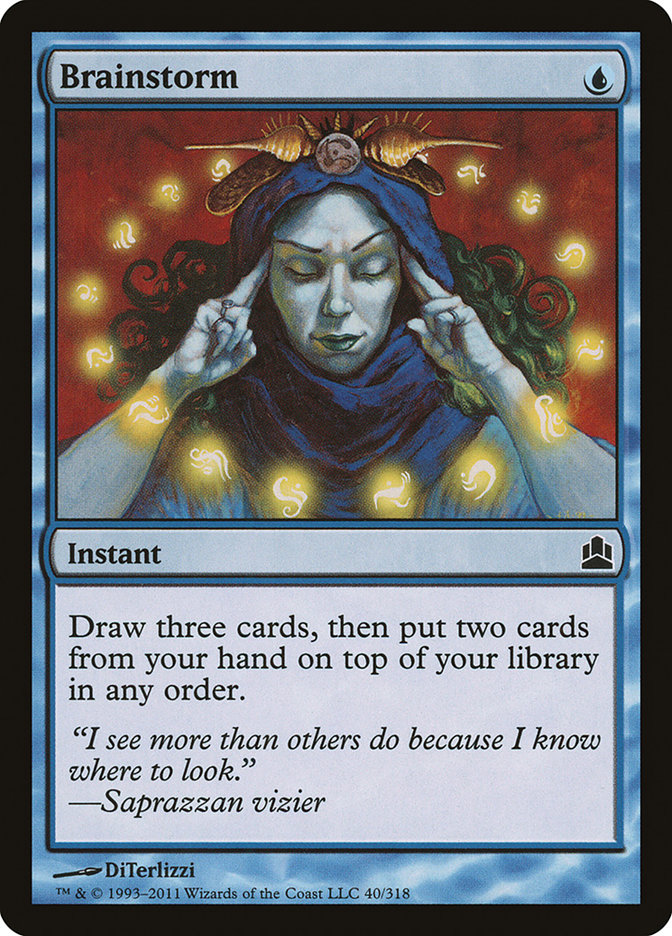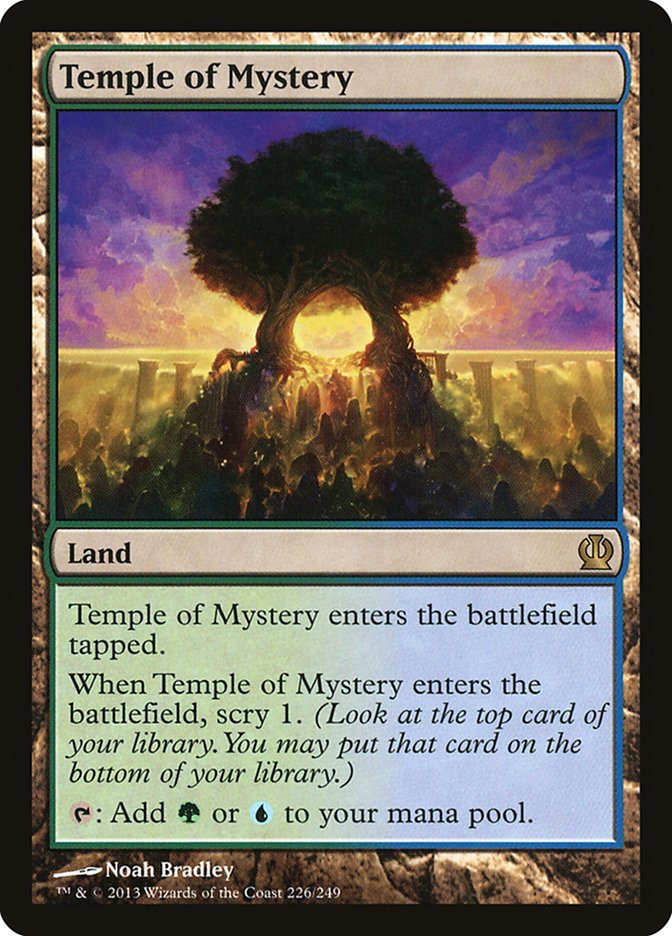I’m a competitive person.
I think growing up having an older brother? It would be hard not to be
competitive.
But chances are you’re a competitive person as well, at least in some
aspects of your life, and especially if you’re reading this article trying
to improve yourself at Magic.
For almost as long as I can remember, Magic has been one of my major
competitive outlets. Magic is a lot of different things, but I’m especially
grateful to have Magic as such an excellent way to express my competitive
needs.
One of the main ways to supplement your growth is through reading and
learning while you adapt through experience as well. There’s always some
incredibly useful books or articles on any subject you want to master, and
Magic is certainly no exception.
There are plenty of resources to get better at Magic: articles with
decklists and sideboarding advice, and even plenty of ideas about mindset
and getting better at competing in general with an emphasis on Magic.
One of my favorite books on the subject of competition is the
The Art of Learning: An Inner Journey to Optimal Performance by
Josh Waitzkin.
You may recognize that name as “the kid” from the movie Searching for Bobby Fischer.
Today, as Pro Tour Amonkhet approaches, I’d like to talk about my
thoughts on competition and the lessons I’ve absorbed, both from experience
and The Art of Learning while focusing on what I’ve learned as it
applies to Magic.
What’s the healthy way to approach the world of competitive Magic? What
kind of mindset does it take to succeed? What kind of fears and obstacles
have I faced along the way? Let’s dig in.
Healthy Competition vs Unhealthy Competition
We’re living in an incredibly unique time period in history.
It just so happens to be the least cutthroat time in history in a
lot of ways. Right now humans are winning at the game of life more than any
other species. It’s unlikely you’ll wake up tomorrow and get mauled by a
bear. That kind of level of safety is more assured now than ever before.
We are also the most enlightened versions of humanity there has ever been.
Even if the stupidity of our species can seem overwhelming at times, at
least we’re doing the best we ever have. We’re standing on the shoulders of
giants and slowing getting better.
Where does competition fit into this modern day lifestyle?
We evolved by being competitive, our ancestors passed on their genes by
being competitive, and now we’re able to express our competitive side
through games instead of life or death situations.
Yet those games can often feel incredibly important and in our minds, they
feel like life or death. We aren’t well-equipped to distinguish between
play or struggle for survival.
Losing in Magic can feel viscerally terrible in the pit of your stomach,
like you lost something real, when in reality you’re just playing a game.
It’s important to remember that.
Healthy competition is ultimately just play, and life nowadays is much
closer to play than life or death situations.
A lot of things we put so much mental weight and importance on in our minds
is ultimately unimportant in a grand sense.
Testing yourself and your limits against the minds and/or bodies of others
is fun. Don’t let it ruin you by taking it too seriously.
For example, you might want to prove yourself a good Magic player but
haven’t found success. You might be tempted to the dark side.
Cheating is only cheating yourself.
You won’t find the answers you’re looking for in external factors like fame
and fortune.
This is why so many successful people are ultimately unhappy.
You need to look inside and take care of yourself on a that level first or
you’ll never achieve happiness.
Play hard, play fair, play for fun, and play to prove yourself.
Luck
Stop complaining about luck!
If you’re complaining about luck, you’re in the wrong place.
Why are you playing Magic in the first place? Magic has a large element of
chance involved. If you’re willing to complain about luck, you’re probably
playing the wrong game or you’re playing Magic to find reasons to complain.
Josh Waitzkin played Chess and moved onto Martial Arts as well. Certainly
less luck-based forms of competition than Magic.
Accept it. Embrace it. Own it.
The thing is you’re always going to find something to complain about if
that’s the type of person you are.
The actual amount of luck involved isn’t really a big deal; it’s your
mindset that matters.
Having a mindset that is immune to the idea of luck should be taught to
children in school. You’re in control of your own destiny. You can be
anything you want to be if you work smart and hard enough.
As far as I’m concerned the only luck that matters is the incredible luck
to exist in the first place. That should be the only luck you care about,
the only luck that matters, and the luck that overshadows all other forms
of luck.
Mindet And Opportunities
What makes someone naturally lucky?
Obviously there’s no luck aura attached to people that makes them more
likely to have positive events occur.
I’m interested in what we can control, and this ultimately boils down to
how you think.
If you’re willing to open your eyes to opportunity and just keep moving
along when a burst of misfortune hits you, you can even turn it into a
positive.
For example, I recently booked a hotel for a Pro Tour that ended up not having
wifi in the rooms, which is highly annoying on it’s own, but it also prevented me from using Magic Online to test.
Instead of lamenting on my luck or mistakes, I simply asked about canceling
my current booking and learned I could get a refund after staying a night,
then booked a better hotel that was also cheaper.
Seems simple enough, but this is the sort of thing that makes someone
“naturally” lucky: just looking for simple opportunities to make a good
situation or flip around a bad one. The world has plenty of opportunities
if you’re willing to look and take them.
Same with Magic. You can mope about how you’re losing or you can look for
ways to win.
The games you struggle to win, the long shot Hail Mary games, are the most
satisfying wins you’ll ever get.
What good are the wins you already had coming anyways?
Resilience is the only way to go. Keep driving to win, no matter what gets
thrown at you. It may sound like a sports drink commercial, but it’s true.
Look for those hard-to-find wins and let the easy wins funnel to you; however, don’t let them slip away by treating them as if they were hard fought wins as well.
Form To Leave Form
Magic can seem incredibly complex when you first start learning it.
But Magic just boils down to putting together a bunch of basic principles
and eventually executing them all together.
One of the first things you probably learned about Magic is that you can
play a land once per turn and you use those lands to cast spells. But just
learning all there is to learn about a seemingly simple concept, like when you should play a land, can be quite nuanced:
-
What combat tricks are now being represented because of that land?
-
What combat tricks are you not representing by not playing your
land? -
Is my opponent land screwed since they attacked before playing a
land? -
Is my opponent land flooded since they immediately played a land
for the turn and look frustrated? -
Are you keeping a land in hand for future use or as discard
protection? -
Is playing a land important now if you topdeck card draw the next
turn and need to make another land drop then to cast multiple
spells next turn?
Seems like a lot to focus on if you’re just learning, but by focusing on
different scenarios and learning them inside out, you’ll be ready for them
in the future.
Concepts like this all add up. It can seem like too much at once, but by
just thinking about and practicing for one situation, it can ingrain it into
your play skills. Eventually, you will have a large library of skills and you’ll
learn to combine them all together to make optimal plays with very little
thought. The pathways to success will already be formed by going through
the basics.
Fear, Stress, And Mindfulness
It’s easy to get caught up in a spiral of thinking too much, especially
when it comes to deckbuilding for me.
One of my biggest fears before a tournament is missing out on a playing a
great deck, missing out on having the perfect list, missing out on that
essential sideboard card, and so on.
But really at certain point you need to just let go and accept you won’t be
perfect.
There are a lot of unknowns in Magic. Perfection is impossible.
Don’t stress about the outcome, just focus on the process. Realize that
sometimes you’ll do poorly, and worrying over every detail isn’t going to
help you. If you want to win, you have to lose first.
Stressing out that you’ll do badly in a tournament is silly. Of course
you’ll do badly sometimes! Don’t sweat the times that you do; enjoy the
times you do well more!
Sometimes it’s fear of negative evaluation that clings to your mind like a
gremlin and eats away at your confidence. Nobody wants to make a foolish
misplay or end up at the bottom of the standings.
But no one is actually judging you. Honestly, just acknowledging your fear
is often enough to conquer it. It’s silly to think everyone is judging you,
yet it’s a very common thought to have.
If all else fails, focus on your breathing. It’s almost impossible to feel
stressed out if you’re taking nice calm deep breaths and your attention is
on your breath. Simple, but effective.
That’s it.
Time to put these ideas into practice for Pro Tour Amonkhet.
I’ll be putting forth my best effort as always. Wish me “luck” although…
Hopefully, I’ll be making my own luck.





